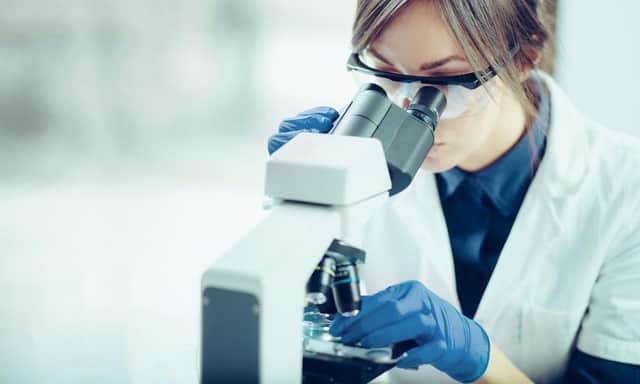Collaborative research and innovation is the key to our future health in Scotland


But Scotland has a thriving life sciences sector and our university researchers are working tirelessly to create a better and more efficient health service that could lead to early detection and better management of a number of diseases.
When we hear of scientists, we often think of a lone genius when in reality, this stereotype couldn’t be further from the truth. Researchers at universities work in teams and collaborate with industry, government agencies, and the NHS to find solutions to some of our greatest challenges.
One of those challenges at the forefront of everyone’s mind is how can our health service recovery from the pressures and backlogs caused by the Covid-19 pandemic.
This thought is also on the minds of researchers in universities across Scotland, who are developing truly innovative solutions in understanding disease, improving our healthcare system, and reducing deaths.
Roughly 10 per cent of our population suffers from recurrent tonsillitis, which requires regular trips to the GP for antibiotics that keep the infection at bay...for now.
The microbes that cause tonsillitis, and many other infections, are increasingly becoming resistant to antibiotics in the market and so continued use of antibiotics for recurring infections is not a long-term solution.
Combatting this issue is a burden on GPs and all clinicians involved in diagnosing and treating this illness.
Professor Gail McConnell, at the University of Strathclyde, is using advanced microscopy tools to understand the cause and treatment required to prevent recurrent bouts of tonsillitis which will relieve a huge burden on GPs and patients.
Dr Matthew Baker is also at the University of Strathclyde where he developed a blood test to detect cancer. His company, Dxcover, has so far secured more than £5 million investment to develop the Dxcover Cancer Platform for the early detection of cancers without the need for invasive biopsies.
Paul Winstanley, CEO of CENSIS, the Innovation Centre for sensing, imaging and Internet of Things technologies, in Glasgow, is leading a consortium of researchers across Scotland who are closing the “digital divide” between the cities and remote areas to pave the way for advanced digital health technologies such as remote care and telehealth services.
Access to diagnostics is of huge importance to our highland and island communities and Dr Andrew Blaikie of the University of St Andrews and NHS Fife is also working on this problem both in Scotland and low-resource countries through the Arclight Project.
He leads a team developing a frugal solar powered diagnostic tools for eye and ear disease called the Arclight.
Not only is this being used in Scotland by medical students and general practitioners but in the past five years over 30,000 devices have been distributed as part of education programmes in Africa, Asia and Latin America to reduce needless disability.
Organisations such as the Scottish Universities Life Sciences Alliance (SULSA) are working to bring universities, industries, and the NHS together to tackle some of our greatest health challenges and drive forward Scotland’s rich medical technology sector, which employees 40,000 people.
With the right investment in our public and private sector, and the mechanisms in place to connect them both, Our Future Health can look as bright as the rainbows we’ve been painting all year.
- Ally Hughes PhD is Project Coordinator at SULSA